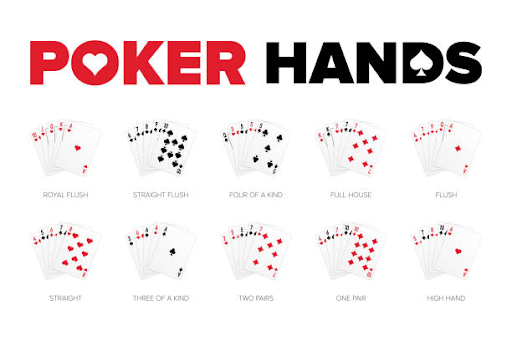
Are you looking to take your poker game to the next level? If so, then it is essential that you familiarize yourself with poker hands and how they rank in comparison to one another. A poker chart, be it a poker starting hand chart or poker hand strength chart, can be a valuable tool for any aspiring poker player, as it will help them better understand the value of their cards when playing different types of poker. With this knowledge, players can make more informed decisions and increase their chances of success.
This article will discuss why a poker hands chart is important for beginners and provide tips for improving your game.
The Importance Of A Poker Hands Chart For Beginners
For poker players just starting, having a poker hand rankings chart nearby can be a great way to learn poker strategy quickly.
A poker hand rankings chart is a visual guide that lists the poker hands from strongest to weakest. It provides information on the poker hand rankings and also allows for quick reference to each hand’s strength relative to the other hands. This feature makes it easy for new players to learn the necessary poker basics and make faster and more informed playing decisions.
Knowing your poker hand rankings can help get you off on the right foot, so brush up before taking your first seat at the poker table.
Best Starting Hands
One of the most critical factors contributing to poker success is knowing which starting hands to play.
A chart can help you quickly decipher what hands to play and when it’s best to fold. It provides a general overview of the likely profitable combinations, enabling even beginner players to make informed decisions right out of the gate.
For example, some of the strongest starting hands in Texas Hold ’em include high pocket pairs (aces, kings, and queens) and A-K suited. Of course, there are much more possible starting hands, so studying the starting hands chart can be your best bet to quickly build a sizable pot in any game while avoiding costly mistakes like calling with marginal hands that could put you out of the game early on.

When To Bluff
So, you have a weak hand, but you’re not too keen on folding. In these cases, the solution may lie in bluffing. While it can be a risky move, if executed correctly, bluffing can be an effective way to turn the tide in your favor, even if you’ve got a not-so-ideal hand.
The key is to know when it’s appropriate to bluff and how likely you are to get away with it. It’s not a bright idea to bluff when you have to put a large amount of money on the line and when you’re more than likely to be called, as this could lead to a considerable loss. With that said, if you know your chances of success are high, it may be worth taking a shot at bluffing your opponents out of their money.
Using Your Money Responsibly
If you have an empty wallet, poker charts can only take you so far. To truly excel at poker, knowing how to manage your money responsibly and be aware of your limits is essential.
Start by determining a budget for each session and stick to it, even if that means ending the night early when you hit the limit. Only spend what you can afford to lose, and if you’re not having any luck with the cards, don’t be afraid to walk away from the table and come back another day.
Following these simple rules will ensure that players treat their money with respect, making it easier for them to have an enjoyable experience without overstepping their bounds financially.

Setting Limits for Playing Time
It’s easy for poker playing to ripple into late nights and lost hours. Not maintaining discipline regarding how much time you devote to the cards can leave you exhausted and, worse, looking to recoup losses with reckless plays.
Setting a strict time limit for yourself to play will help you avoid getting sucked into the game and playing longer than you should, resulting in you making more mistakes and potentially losing money. Whether taking a break after each session or setting an alarm to remind yourself when it’s time to call it quits, managing your playing time will help keep things in check and ensure you’re not overdoing it with hours on the felt.
More importantly, creating healthy boundaries around how long and how often you should play offers an element of self-control and helps ensure that poker remains an enjoyable activity rather than something that starts to take over your life.
With these tips in mind, you’ll be well on your way to mastering the game of poker and becoming a successful player. What are you waiting for? Sign up now at GGPoker, the world’s largest poker room, and start racking up some chips!




